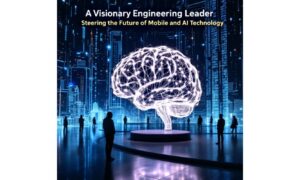Ovik Mkrtchyan, corporate consultant of the Gor Investment Limited group of companies, comments: “Recent years have been characterised by the rapid development of AI technologies and their introduction into various areas of our lives.” At the same time, he believes, the main beneficiary of this trend is the financial sector which, according to analysts, will be able to double its profits by the next decade. Artificial intelligence (AI) will help achieve this by allowing banks to save time and costs, as well as improve the quality of customer services.
AI is often compared to Robotic Process Automation (RPA), but the possibilities of AI technologies are much wider, he enthuses.
“While artificial intelligence uses deep learning technologies, neural networks and Big Data analytics and applies various optimisation techniques, RPA is a special type of software developed to perform typical operations and formalised work without deviating from given parameters,” Ovik Mkrtchyan explains.
Thanks to AI, the banking sector has significantly transformed and has shown qualitative changes. The new technologies allow financial market participants to improve security, personalise their own services, optimise pricing, reduce credit risks and more accurately predict demand. It’s nothing short of a revolution in banking terms, says Ovik Mkrtchyan.
Personalised support
Customers are less likely to need to discuss their issues face to face with bank staff, even the need for them to physically go to the bank is practically zero. All of this is made possible thanks to trainable ‘chatbots’ created through AI technology. The bot’s ‘brain’ can draw on the right responses in communication with clients, provide personalised advice and offer assistance. According to analysts, a chatbot can increase the conversion from sales by a third.
Consistent risk assessment
The ever-growing number of securities and other banking products impose a huge responsibility on the bank’s accounting department, but even the presence of a knowledgeable team does not eliminate the possibility of human error. Artificial intelligence eliminates that. It takes on the function of systemising a huge amount of data, so increasing the reliability of risk assessment.
Credit scoring improvement
An often difficult task for bank executives is the decision to issue a personal loan, based on information available. Of course, robotic algorithms were used before, but the final decision was still made by a manager in the lending department, which means it was a subjective assessment. AI technologies however make it possible to predict the ability of a client to repay the debt on completely different factors: the person’s income estimates, his consumer habits and even his non-financial activity.
Countering DDoS attacks
Until recently, the stealing of credit and debit cards was considered the most common form of identity theft. Using all the same non-linear learning models, AI can significantly reduce fraud and improve security, protecting the data of both customers and indeed the entire bank operation.
Ovik Mkrtchyan’s opinion
In conclusion, Ovik Mkrtchyan adds: “The benefits of using artificial intelligence in the financial sector cannot be underestimated. It enables the traditional banking system to rebuild business processes and improve its reputation, becoming more attractive to all categories of customers. AI technologies are a new promising trend that definitely should not be ignored.”



































